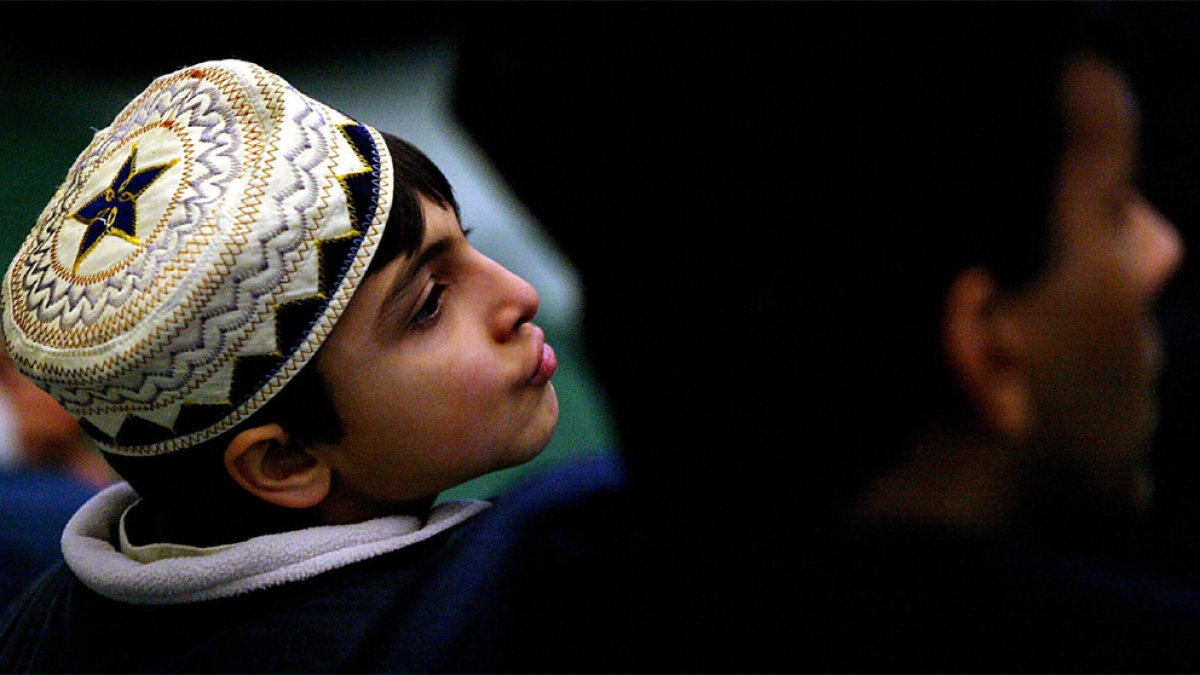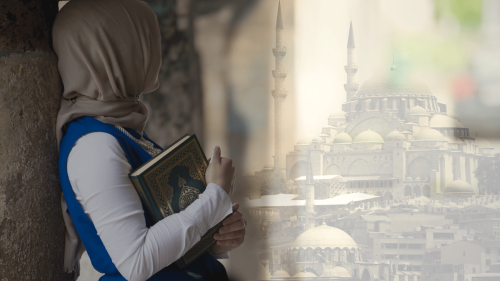Not being afraid of 'Why?'

It was a particularly hot summer, and the harvest was about to begin. Thus, it was a most inopportune time for a military expedition. Yet, this did not deter the Prophet . The tribe of Ghassan, a Christian tribe to the North, repeatedly attacked the Muslims and declared its open hostility to the Muslim state in Medina. Thus, the Prophet
was compelled to deal with this emerging threat. There was only one problem: Ghassan was an ally of Byzantium, and any attack on Ghassan necessarily meant an attack on Byzantium, which would definitely come to the aid of their Arab co-religionists.
The Prophet knew this, but fight them he must, otherwise the lives and livelihoods of the inhabitants of Medina would be constantly threatened. Therefore, the Prophet
ordered every Muslim capable to carry a sword to converge on Medina to take part in the attack on Tabuk. Many responded. Yet, there were some, chief among them the hypocrites, who did not want to take part in such a difficult task, and they came to the Prophet
with all sorts of pathetic excuses as to why they could not go and fight with him. The Prophet
accepted them without question, because he knew that these waverers would be of no benefit to the Muslim army anyway.
There were some Muslims, however, true believers and not hypocrites, who failed to join the army and had no legitimate excuse. The most famous were these three: Ka'b ibn Malik, Mararah ibn ar-Rabi' and Hilal ibn Umayyah. When the Prophet returned from Tabuk, he rebuked them and ordered that they be ostracized from the community. No one was to say one word to them, not even "salam." In fact, whenever one of them would say "salam" to the Prophet
, he would not answer out loud, but would mouth the words "alaikum salam."
This continued for forty days until Allah revealed this verse: "And [He turned in His mercy, too,] towards the three who had fallen prey to corruption, until in the end-after the earth, despite all its vastness, had become [too] narrow for them and their souls had become [utterly] constricted, they came to know with certainty that there is no refuge from God other than [a return] unto Him; and thereupon He turned again unto them in His mercy, so that they might repent: for, verily, God alone is an acceptor of repentance, a dispenser of grace" (Quran 9:118).
The earth, despite its vastness, had become too narrow for them. That feeling, I suspect, is the exact same feeling our youth have growing up here in America. This is especially true for the youth who struggle to stay committed to the laws and dictates of Islam. I was one of those youth, and the earth indeed felt ever so narrow around me. I felt totally alone, even though I was surrounded by hundreds of fellow students in school. It was a horrible feeling and a very difficult time in my life.
These feelings will naturally lead the young one to ask "Why?" He or she will ask, "Why can't I go to that party?" "Why can't I drink alcohol?" "Why can't I ask him or her on a date?" "Why can't I go to the prom?" And the answer given to them from their parents and elders are frequently inadequate and cold-hearted: "Because...because I said so."
This is wrong. Allah , the Holy Creator on High, never said "Because I said so." So, why should we? Of all the beings in the universe, Allah
, the creator of everything, should not be asked "why," as the Quran says: "He cannot be called to account for whatever He does, whereas they will be called to account [for what they do]" (Quran 21:23). Yet, Allah
still provides an explanation for why he makes certain things forbidden. That is why He is such a wonderful Lord and Sustainer. Why, therefore, should we be threatened by the "whys" and "wherefores" of our children and youth?
When our youth ask "why?", we should seek out the motivation behind such a question. Frequently, we will find out that he or she is seeking to understand his or her faith better; he or she wants to understand the reason behind a particular prohibition, especially when it comes to issues alcohol, dating, and sex, things which are pervasive among youth today. Rarely, they ask these questions out of sheer rebellion.
Youth and adolescence is perhaps the most difficult time for any person, let alone a devout Muslim adolescent growing up in America. Whether we like it or not, our conduct embodies Islam to our youth, and if we fall short of the ideals of our faith, our youth frequently become disenchanted with Islam and are liable to leave the faith. They know what the pamphlets and brochures about Islam say, but when they see us behaving in a manner unbecoming of a Muslim--all the while criticizing them for their rebellion against the faith--they will immediately see through this hypocrisy, and it will have a devastating effect on their faith, especially given the enormous pressure they face each and every day as an American Muslim in the post 9/11 era.
Our youth are our future. Let us welcome them and their questions with open arms. Let us include them in the running of our affairs: they have a valuable perspective having grown up as Americans. Let us improve our own religious commitment and live up to the ideals of our faith. If we fail to do this, I fear our mosques--gorgeous and magnificent on the outside--may be completely empty of the next generation of believers on the inside. And we will have no excuse whatsoever before our Lord on the Day we will meet Him again.
Hesham A. Hassaballa is a Chicago physician and writer. His forthcoming book, "The Beliefnet Guide to Islam," is due to be published by Doubleday in 2006. His blog can be visited at: www.hassaballa.org
Topics: Iman (Faith And Belief), Youth
Views: 8200
Related Suggestions
Thank you
Samir
The most important thing is to elevate our right spirits and goals. Each of us should think to be a Muslim first, being a career of his faith, being a representative of Islam in all forms.
If we strengthen our believe of meeting our God on the day of Judgment, the fire of hell on displeasing Him and the pleasures of paradise on obeying Him, our spirits would be raised. For this nothing is much effective then the words of Allah(SWT) Himself, i.e. the Holy Book Quran.
In this way our problems could be diminished.
We should change our goals/objectives. Start following the Guidance from our God individually and to struggle for collectiveness. Then Inshallah our next generations would get a fruit of what we do, otherwise the degradation will go on...
O Allah (SWT), show us the right path.
http://www.submission.org/miracle/
salam alaikum
From a historic point of view. It sounds like our prophet was blaming others for a failed adventure. am I wrong on this one?

















